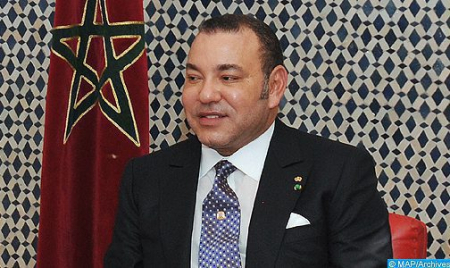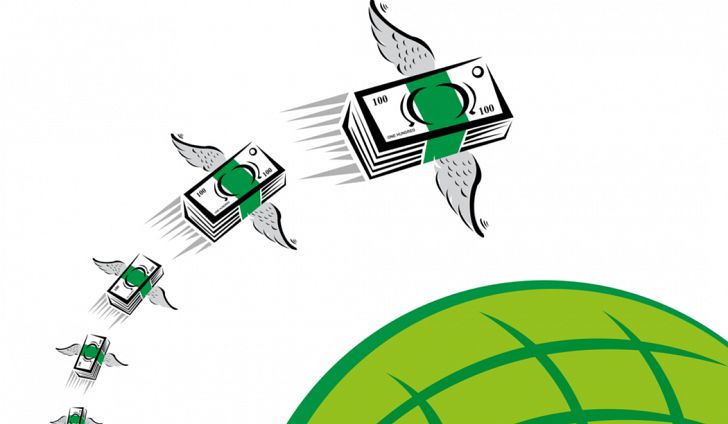King Mohammed VI has proposed the setting up of an African Institute for Lifelong Learning to strengthen South-South coordination and cooperation in the field of adult learning and lifelong education.
The suggestion was made in the message he addressed to the UNESCO’s Seventh International Conference on Adult Education (CONFINTEA VII), held in Marrakech under the theme “Adult learning and education for sustainable development – A transformative agenda.”
In the message that was read out by Head of the Government Aziz Akhannounch, the King explained that to further enhance its commitment in the area of lifelong learning, “Morocco proposes the launch of an African initiative to strengthen South-South coordination and cooperation in the field of adult learning and lifelong education, in the form of an African Institute for Lifelong Learning.”
This institute would serve as a regional capacity-building center for regional stakeholders, institutions and organizations operating in the field of lifelong learning, the Sovereign pointed out, adding that the institute “would facilitate the exchange of success stories as well as the sharing of knowledge and experiences in the field of adult learning and education, especially at the level of African learning cities, and the promotion, through them, of cooperation relations with similar cities around the world.”
The institute would also work with local stakeholders, including political decision-makers, professionals, heads of NGOs and researchers in order to evaluate public policies in the area of lifelong learning at a continental level, building on an approach that puts learners and trainers – male and female alike – at the center of its priorities, he explained further.
The King also renewed the Kingdom’s active involvement in the actual implementation of the principle of lifelong learning, stressing that the holding of the conference for the first time in an Arab and African country confirms this involvement.
This involvement was given concrete substance on the ground when the cities of Chefchaouen and Benguerir joined the Global Network of Learning cities, and when Morocco was granted a UNESCO Chair, thanks to the establishment of an observatory of lifelong learning. This was also in recognition of its contribution to the preparation of mechanisms for monitoring and evaluating learning abilities, in partnership with the UNESCO Institute for Lifelong Learning, he said.
In his message, King Mohammed VI also surveyed the efforts made by the kingdom to implement programs for adult learners, noting that these efforts are made in cooperation and concertation with all stakeholders, including the public and private sectors, universities, local governments, civil society organizations and international partners.
He stated further that he has always sought “to make sure quality education is provided to all Moroccans, from all social backgrounds and age brackets – an education that enables them to be part of the knowledge and communication-based world, that prepares them properly for professional life, and that contributes to individual and collective advancement.”
“It should be pointed out, in this regard, that the New Development Model (NMD) adopted by my country has created strong momentum and given a fresh start to this sector,” the message read, noting that the NMD seeks to pave the way for an educational revival with a view to guaranteeing and strengthening the human capital that will drive development, while opening up promising prospects for the future.
“Our efforts in this regard are enhanced by making civic education and values a core element of the Moroccan educational project, by consolidating the mechanisms relating to education, training, integration, and funding of activities for women, and by strengthening pathways leading to lifelong education and training in order to enhance the skills and capabilities of every Moroccan citizen,” HM the King noted.
Recalling that Morocco is making tireless efforts to provide quality lifelong education for all Moroccan children, starting with primary education, the Sovereign stressed the special importance that the Kingdom attaches to the education of youth, providing them with a vast gamut of learning opportunities that guarantee their right to acquire the qualifications they need for economic integration, and to gain the knowledge and skills required for social advancement.
“This protects them from the scourge of ignorance and poverty, as well as from any inclination towards extremism or reclusiveness.”
The Kingdom has also sought to step up efforts to promote vocational training opportunities for young people and adopt training modules in various areas of specialization.
In order to enable young people to continue to learn and to benefit from training for longer periods of time, especially for those who drop out of school, the initiative entitled Second Chance Schools – New Generation for Education and Rehabilitation has been launched. The initiative combines school and workplace experience to support and accompany every young man or woman’s individual professional project, the Sovereign added.
“The national program for the promotion of literacy falls within the same context. Targeting a broad category of citizens – male and female alike – the program seeks to do more than just teaching people to read and write. It aims to facilitate the integration of target groups into the labor market through training courses,” he underlined, insisting that Morocco also seeks to facilitate women’s access to education and ensure their economic empowerment for life, so they may contribute effectively to development, increase their capabilities and achieve their personal ambitions.
The CONFINTEA VII, held from 15 to 17 June, in Marrakech, gathers participants from across the globe who will take stock of achievements in adult learning and education, discuss challenges, and develop a new framework for action to make adult learning and education a reality around the world.


